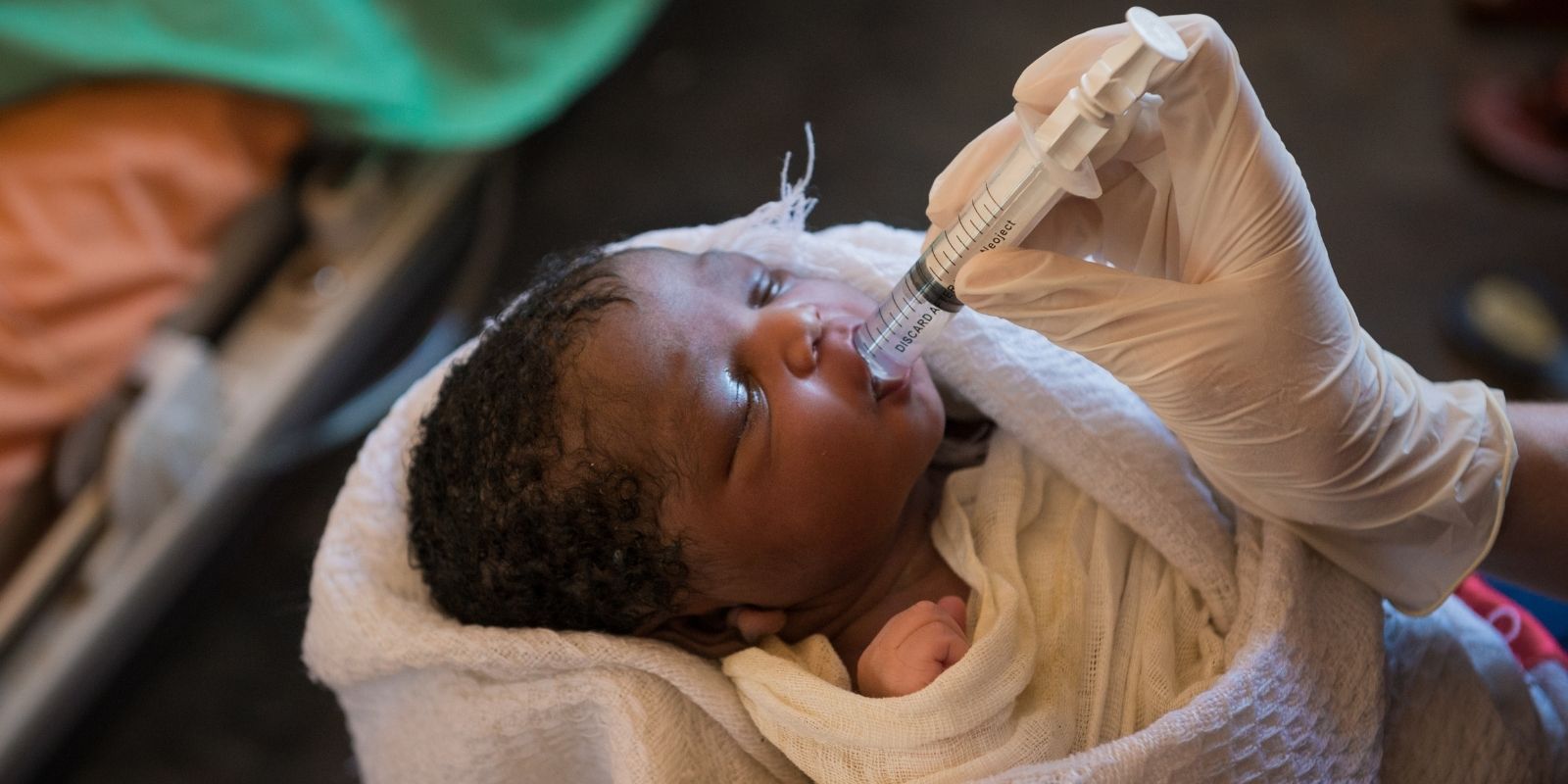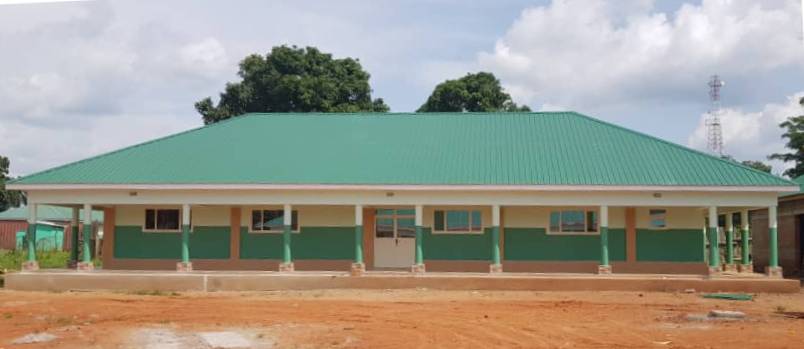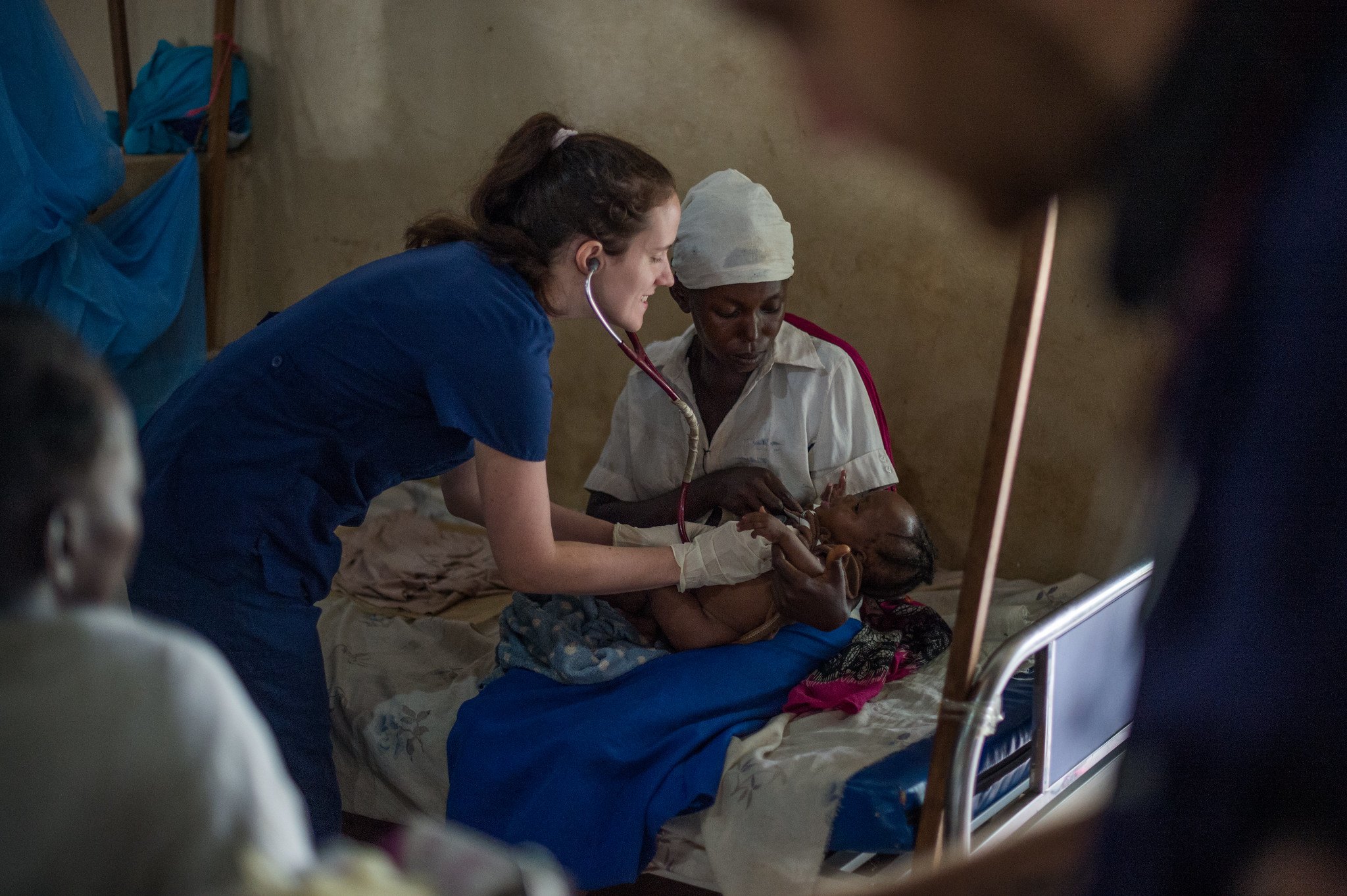Fairfield Students Reflect on Sarah Rubino’s Remarkable Volunteer Journey
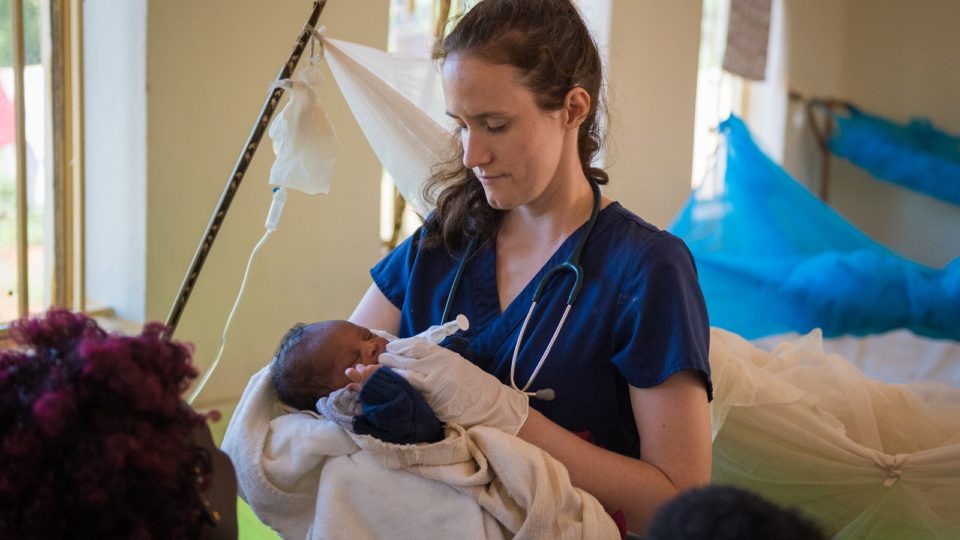
Sarah Rubino is a CMMB volunteer and nurse midwife who served in South Sudan with her husband Martin Rubino twice. Recently, Fairfield University students had the chance to meet Sarah virtually and learn more about her time in South Sudan, her dreams for the patients she served, and the lessons she learned from other mothers there as she began her own motherhood journey.
The students shared how Sarah’s presentation affected them. Read their thoughtful responses here.*
(*Some excerpts redacted for brevity.)
Kevin: Hearing Sarah Rubino’s story was very powerful. It was incredibly powerful to see and hear about the impact she was able to have on the South Sudanese women… I never thought about how childbirth works in poorer countries than the United States; however, after seeing the equipment, I now understand the privilege associated with having a child in certain countries over others.
Linh: I couldn’t help but sit in total silence. A response that was partly due to my amazement and awe of both the hardships and lessons she gained, but also because I couldn’t imagine how I would react being put into such a circumstance. I find her work in the country so incredibly inspiring as an aspiring healthcare provider. I simply hope I can provide the same security and comfort for my future patients as Mrs. Rubino has done for the various mothers and their children during her stay.
[The presentation] makes me reflect on all the privileges I have living as a person in the United States. It’s almost ironic, I like to think, as I am an immigrant myself. I was born in the rural south of Vietnam with conditions not too different from that pictured in South Sudan. Somehow, I survived and made it to the land of milk and honey despite all the challenges and obstacles in my path. Though I am extremely grateful, part of me feels guilty for enjoying the luxuries others can never dream of. Instead of wallowing in this sadness, I will choose to take my personal advantage and share it with those who truly need it through my work as a future healthcare provider.
Nick: When listening to Sarah Rubino’s presentation, one word came to my mind: “awareness”. As an individual, how can I become someone who is more aware of the world I live in? As an entire world of people, how can we become people who are more “aware” of problems that are taking place all throughout our world? To become more aware, myself and others must open our minds and be willing to learn. Just as Sarah learned how to be a better mother from the mothers she worked with in Sudan, we must be willing to humble ourselves and learn from the experiences of all people in our world.
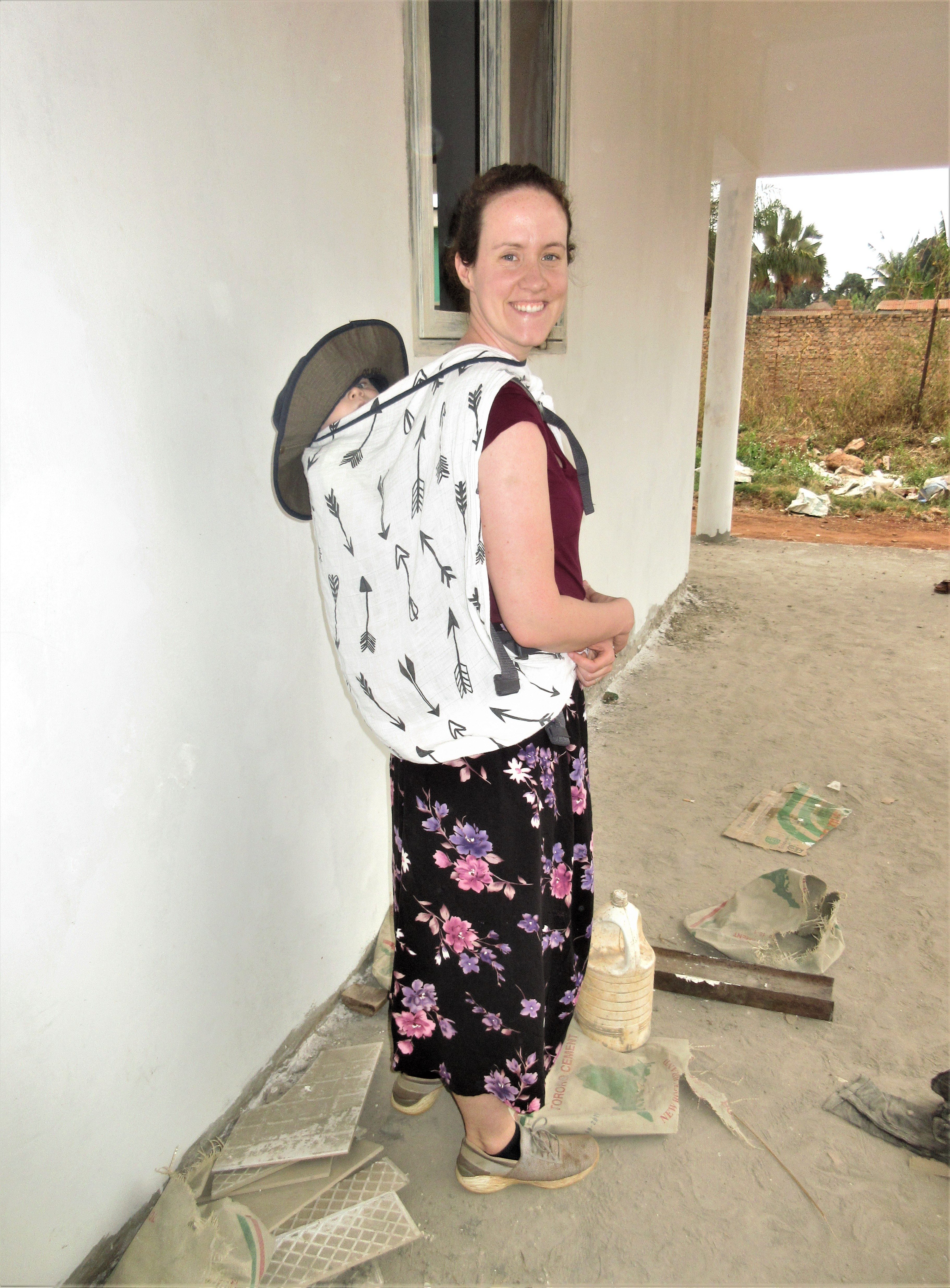
“Max and I outside the new blood bank, Max is tied to my back in a similar way most women in Nzara carry their children. I found this to be the best way to carry him around.”
Rose: I think it goes without saying that this discussion was incredibly heartbreaking, thought-provoking, and impactful. It is one thing to be aware that issues are occurring across the world, but a completely different thing to hear from a woman who has seen it firsthand and have her relay her experiences to us.
[An] image that really intrigued me was that of the St. Therese Hospital as of now, after all the work they put into making it safer and better. I’d love to learn more about this process in addition to other actions that they’re actively taking to aid these women in South Sudan. The work they have been doing here is so important, and I found it incredibly moving when Sarah Rubino said “Those mom’s deserve as much hope as I have” towards the end of the discussion. This, in a way, filled me with so much anger. These mothers are subjected to such horrible conditions and there is so much that everyone can do to help this, and it angers me that this is still happening here and across the world. These speakers were incredibly moving, and I am definitely looking forward to seeing what they can do in the future for women and children like those represented in the images we saw today.
Andrea: One of my favorite points from the talk is the power of learning from other mothers. Sarah learned what it means to be a mother and to lose a child from working with these women. It is so impactful how they shaped her identity as a woman and as a mother to her own children.
Avery: Sarah brought up the concept of intervention vs. accommodation, and how necessary it is to consider what will work best for the people in the village and to not force out Americanized solutions when providing aid. This made me think about our lessons on how important it is to do no harm and to listen to what will be best after the aid leaves. Sarah’s adaptability and compassion for these mothers shined through in her presentation as she discussed how she adapted from her job of delivering babies to mainly keeping the babies alive.
Sarah’s insight on how COVID-19 resulted in western countries hoarding resources even more and using up what would’ve gone to nations that have nothing really upset me and I hope that there is more widespread discussion of how the global north must start to share the wealth to those that live an unimaginable struggle daily. I am extremely passionate about equal access to health care, and I will continue to make my voice heard about these devastating situations.
Jackie: As someone interested in becoming an educator, I loved hearing about her ability to reach women who did not look or sound like her through sincerity and openness. I think that principle is essential to teaching and life. Sarah is such an inspiration and I was grateful our class was able to speak with her. Left class hoping to find a way that I could make my own impact.
Jenna: Sarah’s presentation brought a fascinating perspective on healthcare with countless points that I had never had the opportunity to consider in my years studying nursing. I entered the presentation eager to learn more about the field that I loved, and was fascinated by how different Sarah’s experiences were from the career I have been preparing for.
Jennifer: Overall, hearing from Sarah Rubino and the other members of the CMMB enforced the idea that if you want to change something, you need to take action. Small ideas can cause big impact and lead to a better life for others.
